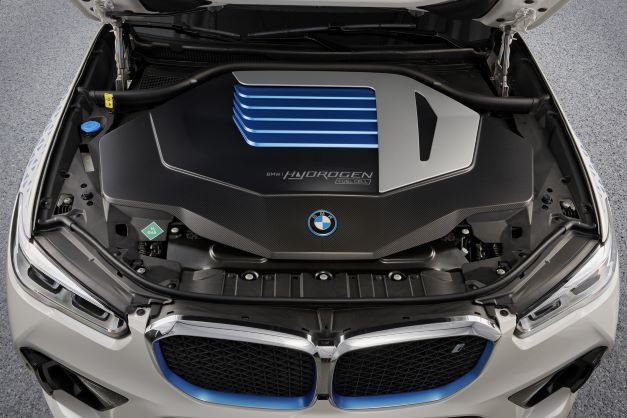BMW launches production of hydrogen fuel-cell systems for a limited series of zero-emissions BMW iX5 Hydrogen cars that will undergo testing and demonstration from the end of this year.
The fuel-cell systems being produced at BMW’s in-house competence center for hydrogen in Munich, Germany, generate continuous output of 125 kW/170 hp. The powertrain, teamed with an electric motor featuring fifth-generation BMW eDrive technology and a high-performance battery purpose-developed for the iX5, delivers 374 hp.
The drive system, comprising two hydrogen tanks, the fuel cell and the electric motor is incorporated into the existing BMW X5 platform for the small production run. The BMW iX5 Hydrogen underwent successful winter testing in Sweden early this year.
“As a versatile energy source, hydrogen has a key role to play on the road to climate neutrality,” says BMW Chairman Oliver Zipse. “And it will also gain substantially in importance as far as personal mobility is concerned. We think hydrogen-powered vehicles are ideally placed technologically to fit alongside battery-electric vehicles and complete the electric-mobility picture.”
Adds Frank Weber, member of the board of management in charge of Development: “Our many years of research and development work have enabled us to get the very most out of hydrogen technology. We have managed to more than double the fuel cell’s continuous output in the second-generation fuel cell in the BMW iX5 Hydrogen, while weight and size have both decreased drastically.”
BMW says it has extensive experience with the use of hydrogen as a drive technology, including hydrogen-powered combustion engines. Development work continued beginning in 2015 with the BMW 5 Series GT Hydrogen Cell based on fuel-cell technology. Fuel-cell technology since has been refined by adapting it to conventional drive technologies and applying the automaker’s standards of all-around efficiency.
Maintaining a steady supply of hydrogen and oxygen to the fuel cell’s membrane is critically important to the drive system’s efficiency. In addition to the technological equivalents of features found on combustion engines, such as charge air coolers, air filters, control units and sensors, BMW also developed special hydrogen components for the new fuel-cell system, including a high-speed compressor with turbine and high-voltage coolant pump.
BMW sources the individual fuel cells required for manufacturing the BMW iX5 Hydrogen from Toyota. The two companies have been collaborating on fuel cell drive systems since 2013.






